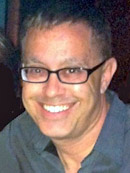
THE BRIDGE TO COLLEGE
What May Happen After the Supreme Court Speaks

The year is 1983, and I have just graduated from Harvard. Anxious to do something worthwhile (or what I thought might be worthwhile), I join the Harvard Schools Committee to interview applicants for my alma mater.
Twenty-nine years later, after a pseudo-glorious stint as the chairman of our local Harvard Schools Committee, I started an educational consulting business to help students gain admission. Honestly, I had no idea what I was doing, but I learned … and then some.
After 10 years and over 2,000 students, I have realized many things about college admissions. And about graduate admissions. And about human nature. Here are just a few tidbits that I’d like to share:
First, highly selective admissions is not all about grades and test scores. At least not in the U.S. In fact, it’s about people. It’s about creating diverse communities where most of the education happens outside the classrooms. It’s about good people making each other better.
Second, emotions – not objective data – are the rock-solid foundation of admissions decisions. Whenever humans read essays or recommendations letters or reports, human nature is necessarily involved. The process is subjective, not random. I don’t care what anybody says: absent extraordinary circumstances, how people make decisions is a lot like dating. They either fall in love with you, or they don’t love you enough.
Third, by harnessing the soft sciences, we can and do influence admissions readers significantly. Our processes are technique-driven, and they work.
Fourth, with good engagement and open minds, young people can write amazing essays. When I say “amazing,” I mean world-class. Better than you can write. Better than I can write. It’s breathtaking, and it gives us so much hope for our societal future.
Fifth, none of the good stuff happens without real engagement. A strong, trusting relationship between consultant and client is paramount. Absent that, fuhgeddaboudit. We can’t sprinkle magic dust on a slacker, nor can we polish a stinking turd (I’ve always wanted to say that in print).
Sixth, when I say “client,” I mean both the student and the parents. Everyone has to row the oars in the same direction to make the boat move forward best. Parents have a distinct role, an important one, so don’t neglect the process nor try to drive the process. With all due respect, you ain’t an expert. That’s why you hired one. But parents need to engage, too.
Seventh, when I say you hired “one,” I mean “it’s better to hire a team.” Trust me; I used to do this stuff all by myself. Everyone has bias, everyone has a bad day, everyone gets tired, everyone needs fresh eyes and fresh ideas … even me, Mr. Know-It-All. Here at UCA, we all work together to advance each client’s individual, personalized best interests. Every day, someone in our office exclaims, “I wish they could see what we do!” We even tried recording some of what it, but the video files are way too big to share. Sorry.
Eighth, this idea of keeping your consultancy a secret is just silly. Walking through the shadow of the valley of admissions death is much easier with friends. Connecting young people and adults with each other leads to better things. Conversely, secrecy robs your high school counselor of the opportunity to help you as best they can. Transparency and community are two important values around here.
Ninth, reputation matters, but it really doesn’t. I get it. I have the word “Harvard” on my resume. Yes, it opens doors, but only so far. What really matters is fit, that organic combination of curricular structure, campus culture and off-campus opportunity. This is not about a line item on a resume. This is about success, in college and beyond. It’s about being great, not about wearing a T-shirt of a school that is considered to be great. Don’t achieve your best, and you won’t achieve much of anything, regardless of your resume. Now, while you’re thinking “yeah, but,” please accept this reality check: admissions is not like making a reservation at a five-star hotel. It’s hard, like making an Olympic team. Seriously, it’s that hard.
Tenth, admissions decisions are neither the end of the world, nor the beginning. The “why” of getting in – or not – has so many factors involved, all of which have to do with the school’s needs, not yours. In fact, the colleges spew out so much bad information – untruths that most people consider to be true – that you need to be a conspiracy theorist (or hire an excellent consultant) just to navigate the morass that favors them, not you.
That’s all I have room for today, but you know how to find me!Robert LeVine is the founder and CEO of University Consultants of America, an independent educational consultancy assisting students around the world with applications to colleges, universities and graduate schools. For more information, call University Consultants of America, Inc. at 1-800-465-5890 or visit www.universitycoa.com